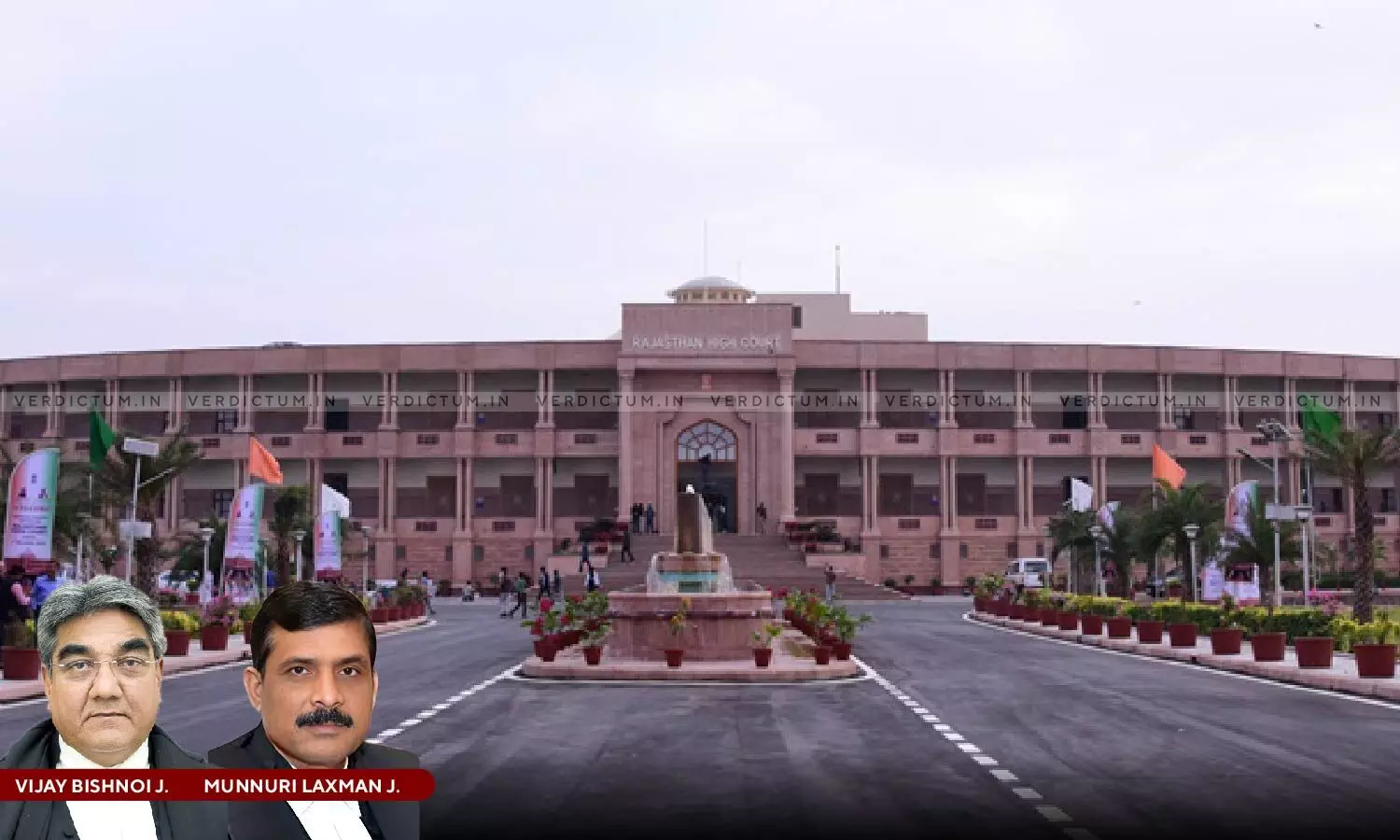
Writ Petition Raising Only Questions Of Law Should Be Decided Instead Of Dismissing It Citing Alternative Remedy: Rajasthan HC
 |
|In matters with purely legal disputes without contested facts, the Rajasthan High Court observed that such writ petitions should be adjudicated by the High Court rather than dismissing it solely based on the existence of an alternative remedy.
The Court allowed a Petition seeking to quash the Penalty Order and the consequential demand notice under Section 156 of the Income-tax Act, 1961 (IT Act).
The Bench comprising Justice Vijay Bishnoi and Justice Munnuri Laxman observed, “where the controversy is purely legal one and does not involve disputed question of fact but only question of law, then it should be decided by the High Court instead of dismissing the writ petition on the ground of alternative remedy”.
Senior Advocate Vikas Balia appeared for Petitioner and Advocate K. K. Bissa appeared for Respondent.
The Petitioner, a company, filed its income tax return for the financial year 2019-2020. Subsequently, notices were issued, questioning the deduction of education cess. In response, the Petitioner withdrew its claim. The assessing officer added back the claimed amount to the company's income, initiating penalty proceedings under Section 270A for misreporting. The company sought immunity and applied Section 270AA. Despite responses to various show cause notices, the department imposed a 200% penalty on March 31, 2023.
The Petitioner filed a writ petition seeking to quash the Penalty Order and the consequential demand notice under Section 156 of the IT Act. The Petitionert also sought a declaration that the disallowance of a deduction for any surcharge of cess, not allowable under Section 40, shall be considered as under-reported income for penalty purposes under Section 270A.
The Court noted that the writ petition was maintainable as it involved a purely legal question, without requiring an investigation into facts. The court rejected the Respondents' preliminary objection. The Court referred to the case of M/s Godrej Sara Lee Ltd. vs. The Excise and Taxation Officer-cum-Assessing Authority and Ors..
The Court emphasized that Sub-section (18) of Section 155 of the IT Act, effective from April 1, 2022, stipulates that if a deduction of surcharge or cess, not allowed under Section 40 of the Act, is claimed, it shall be treated as unreported income for penalty purposes under Section 270A. The provision also allows an assessee to request recomputation by applying in a prescribed form within a specified time, and if the difference amount is paid within the given timeframe, the claim will not be treated as unreported income.
Furthermore, the Bench noted that Section 270A outlines penalties for under-reporting and misreporting, with sub-section (9) of Section 270AA categorizing cases of misreporting. Sub-section (3) of Section 270AA empowers the assessing officer to grant immunity from penalty under Section 270A and initiation of proceedings under Sections 276C or 276CC after the appeal period, provided proceedings haven't been initiated under circumstances specified in sub-section (9) of Section 270A.
Additionally, the Bench observed that Sub-section (4) of Section 270AA mandates the assessing officer to decide on an application for immunity within one month from the end of the month in which the application is received.
In this case, the Court observed that the Assessing Officer had not specified under which part of sub-section (9) of Section 270A of the IT Act the Petitioner-company's case falls in the assessment order or subsequent show-cause notices. The impugned order also lacks such specifications. Despite the Petitioner justifying its claim for the deduction of education cess in various responses to show-cause notices, the Assessing Officer mechanically passed the impugned order without considering or rejecting the justifications.
The court held that, given the withdrawal of the claim by the petitioner, and its entitlement to immunity under Section 270A, the proceedings for penalty imposition are unfounded. Additionally, the initiation of proceedings, lacked specification under sub-section (9) of Section 270A, rendering it invalid. The Court rejected the conclusion in the impugned order that the petitioner fails to meet the conditions of sub-section (3) of Section 270AA as illegal and unsustainable.
Accordingly, the Court allowed the Petition, set aside the penalty order and demand notice and directed the Respondent to grant immunity to the Company under Section 270AA of the IT Act.
Cause Title: G R Infraprojects Limited v Assistant Commissioner Of Income-Tax (2023:RJ-JD:44789-DB)
Click here to read/download Judgment